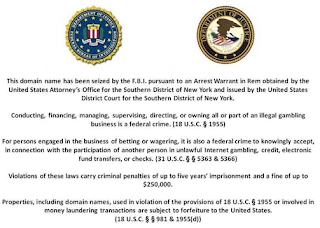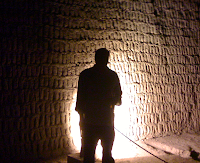Online Poker in the News
 Poker -- especially online poker -- is getting a lot of mainstream attention in the U.S. and elsewhere these days, thanks to the Department of Justice’s indictments and civil complaint versus the founders of PokerStars, Full Tilt Poker, and Absolute Poker/UltimateBet, unsealed just two weeks ago today. (Seems longer, doesn’t it?)
Poker -- especially online poker -- is getting a lot of mainstream attention in the U.S. and elsewhere these days, thanks to the Department of Justice’s indictments and civil complaint versus the founders of PokerStars, Full Tilt Poker, and Absolute Poker/UltimateBet, unsealed just two weeks ago today. (Seems longer, doesn’t it?)Among examples of such mainstream focus, articles by Nate Silver (“After ‘Black Friday,’ American Poker Faces Cloudy Future,” New York Times) and Matt Matros (“After the Dept. of Justice Shuts Down Online Poker, a Poker Pro Defends His Game,” Washington Post) have stood out for me as especially insightful analyses/responses to what has happened. Of course, both Silver and Matros are themselves online poker players, and thus perhaps especially well-versed to address the online scene.
But reports, profiles/features, and editorials continue to pop up all over. Here’s a list of just a few of the places where I’ve found myself reading about online poker and “Black Friday” over the last two weeks:
Yesterday came another such article, an op-ed by Kate Moulene appearing on The Huffington Post website provocatively titled “Can Poker Save the World?”“Prosecutions Turn Online Poker Into a Shaky Bet” (Associated Press) “Crackdown Could Limit Entries” (USA Today) “Full Tilt Poker defends itself and its CEO amid FBI crackdown” (L.A. Times) “Online Poker Players Face Big Life Changes” (Wall Street Journal) “Foreign Money Fuels Faltering Bid to Fuel Online Poker” (New York Times) “Online Poker Player Accounts Frozen as U.S. Indicts Operators” (Bloomberg) “Odds Aren’t Looking Good For Online Players” (Miami Herald) “How a Vegas Boy Bet the House and Lost It All” (Sydney Morning Herald) “U.S. Prosecutors Not Bluffing With Shutdown of Poker Sites” (Toronto Star) “Online Poker Raid Wastes Resources” (Washington Times) “Poker Players Protest Government Seizure” (CNN)
The piece isn’t necessarily the epitome of solid argumentation. It’s thesis is clear enough -- namely, that the U.S. should consider licensing and regulating online poker. But the supporting points are hit-or-miss in terms of their depth or persuasiveness.
The organization of the article leaves a bit to be desired, too. Moulene cobbles together various references to the U.S. economy, the poor math skills of American children, studies about the potential revenue to be had from taxing online poker, the WTO case brought against the U.S. by the “Caribbean government” (?), Charles Neeson’s Global Poker Strategic Thinking Society, Chris Ferguson’s Ph.D., and the number of bracelets won by Phil Hellmuth to build her case.
Sorting through all of that, she seems to be saying poker is a skill game played by smart people (and that makes players smart), and thus should not be prohibited, especially given the significant benefit to be had by the U.S. from regulating and taxing it.
Reactions to the Huffington piece from folks within our little poker world were somewhat positive, though many pointed out how the piece was obviously incomplete and/or flawed. My sense was most seemed to think it was good enough to see a “pro-online poker” argument being advanced in a non-poker context, even if the argument lacked the sort of precision we’d like to have seen.
Of course, I suppose it isn’t a stretch to say that the entire debate over online poker in the U.S. has been characterized by imprecision -- some intentional (i.e., politically motivated), some not -- by those involved.
Which partly explains how we got here, I guess.
Labels: *the rumble, Black Friday, The Huffington Post
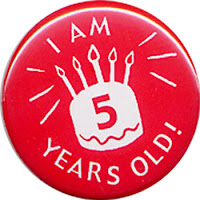

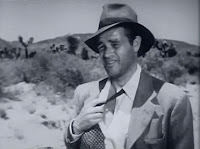





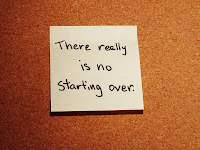
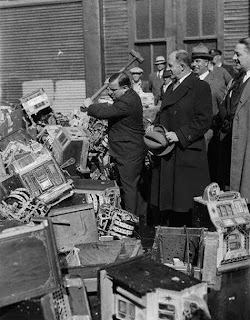
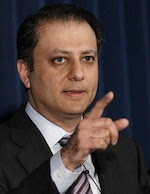

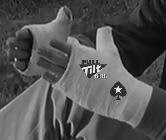
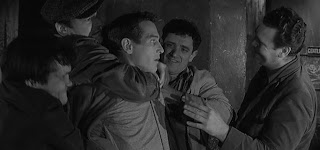



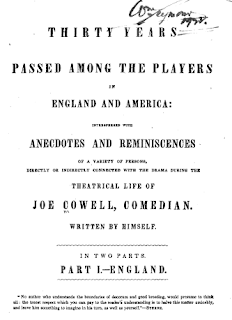
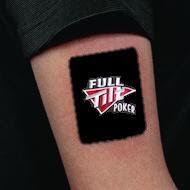




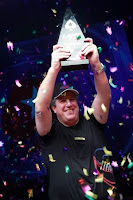



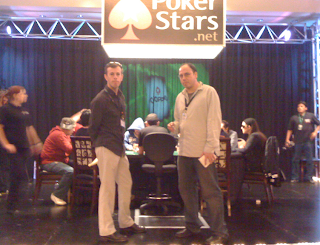




 . Neto had pocket jacks, and despite two spades coming on the flop and a nine on the turn, Neto’s hand held up.
. Neto had pocket jacks, and despite two spades coming on the flop and a nine on the turn, Neto’s hand held up.
